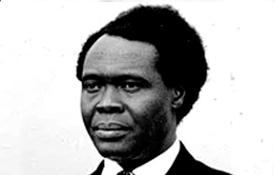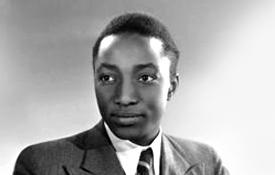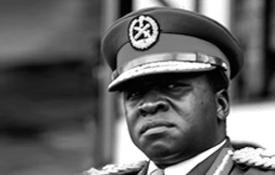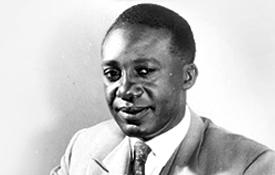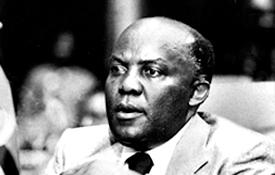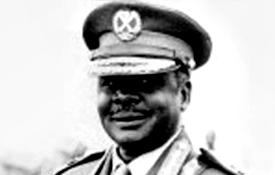He is the only President to have sat in State House on two different tenures; first in the 60’s just after Independence and then from 1981-85 after Idi Amin. It was also to Milton Obote that the very symbolically important National Flag was handed at Independence Day on October 9th, 1962. On the other hand, Obote is held responsible for much of the
political and military turmoil, which characterized Uganda in the early years after independence.
Milton Obote was born in a small village, called Akokoro, in 1925 to Stanley Opeto – a village chief and Puliska Opeto who was a simple housewife. Milton Obote was the third child out of 11 children.
For Primary education, he went to Ibuje Primary School in Lira and later moved to Jinja and joined the famous Busoga College, Mwiri for his higher education. He later qualified to join Makerere College (now Makerere University) to study Economics.
However Milton Obote did not finish his education at Makerere University and there are conflicting reports about why he left Makerere without completing his degree. He claimed that he did so because he was being forced to study what he was not comfortable with. He explained that his major goal was to study Law and not economics.
Another report however indicates that he was expelled from the University after leading a strike. On leaving Makerere, he tried to go for various scholarships in both the US and the UK, but his moves were thwarted by the British.
While still a student, the young Obote had already distinguished himself as a leader. Throughout Lango and many parts of the north, he mobilized the masses for both work and political self determination.
With no educational qualifications and hence jobless, Obote decided to work as a casual laborer for Mowlem, a famous construction firm at the time. For some reason, he was transferred to Kenya and it is here that his political dynamism came to the fore. He soon joined Kenya’s agitation for political independence and his political party of choice was the Kenya African Union.
Along his employers, Obote continued shining and soon, he was removed from being a mere casual laborer to an office worker. He grew in stature as a trade unionist in Kenya, advocating for workers’ rights and at the same time propagating self determination for Kenya. It was then that the British colonialists took notice of him.
Obote returned to Uganda in 1975 when the country was agitating for independence. He had already heard about the political parties leading the fight in Uganda and he made his choice. Among the parties of the time included the Uganda National Congress (UNC) of Ignatius Kangave Musaazi, the Democratic Party (DP) of Bendicto Kiwanuka among others. He chose the UNC and soon rose to the level of Deputy Chairman of the party. For coming late, when the independence agitation had started way back, Obote was in some circles called ‘a late comer’ who ate the juicy piece!
He also came back at a time when the independence discussions between Ugandan agitators and the British were set to kick off under the Legislative Council (LEGCO). Obote was nominated as a member of the LEGCO by the Lango District Council in 1958.
By 1960, Obote had ‘disorganised’ Musaazi and Kiwanuka out of the UNC and became its President. However, seeing no future with the UNC, he formed his own political party, the Uganda People’s Congress (UPC).
In 1962, after losing to DP in the earlier elections, Obote jumped into an alliance with Kabakka Yekka (KY) a party that was largely advocating for Buganda’s rights. The alliance then won the independence elections, which warranted them to form the first independence government. Subsequently, Obote became the executive Prime Minister of Uganda while Sir Edward Muteesa became the ceremonial President of Uganda.
By 1964, the alliance between UPC and KY had started to crack over different factors and by 1966; Obote ordered his then Army Commander Colonel Idi Amin to attack the Lubiri-resulting into the desecration of the Kingdom. The Baganda were angry with Obote for destroying their kingdom. On his part however, Obote claimed that he
did so because he wanted to maintain Uganda as a nation. But it is largely because of this fall out that, according to political observers, Uganda set on the road to the carnage and turbulence that characterized the 70s and 80s.
In 1967, Obote promulgated a new constitution that replaced the 1962 Independence Constitution and declared Uganda a Republic. Obote then became the President of Uganda.
By 1969, he had fallen out with more of his party members. They argued that he was becoming more autocratic and was no longer listening to them. He also got the idea of nationalizing all businesses in the country and was looking at more support from the East than Uganda’s traditional allies, the west. In 1969, there was an attempted assassination at him at Lugogo. This was a harbinger of things to come.
But it was also around this time that he implemented some of the most notable development projects in the country, when his government constructed 22 big hospitals and at least 30 big secondary schools across the country.
By 1970, the British and Israelis that had supported Uganda for much longer had completely fallen out with him. A plot to get rid of him was then hatched. Surprisingly, the person that the coup plotters chose to replace him was none other than Idi Amin, his long standing ally.
On January 25, 1971, while Obote was attending a Common Wealth Conference in Singapore, he was overthrown by Idi Amin.
Obote ended up in Tanzania as a refugee, however, he soon started organizing fighters to come back and overthrow Idi Amin. In 1971, he tried to organize a force to attack Uganda from the Sudan.
In September 1972, an attack organized by him and other exiles like Yoweri Museveni finally took place. It was however a fiasco as Amin’s forces defeated the attackers and chased them back to Tanzania.
But Obote’s friendship with Nyerere meant that he stayed in Tanzania and continued organizing. When Amin attacked Tanzania in 1978, Obote and his fighters on one part, then other groups like FRONASA supported by the Tanzanian government counter attacked and on April 11 1979, overthrew Amin.
Because of the animosity that Obote had generated in his first term, many neutrals did not want him to return as President of Uganda. This is why Yusuf Lule was named President, followed by Godfrey Binaisa, then Paulo Muwanga before elections were held. It was only through elections that Obote found a clear way of returning as President. In an election organized by his cohorts like Paulo Muwanga and with the army headed by David Oyite Ojok totally behind him, Obote returned and took part in the elections that were so bungled up and rigged that he had to win them.
Obote’s second term was nothing but bloody. In February 1981, a rebel group, the National Resistance Army (NRA) led by Yoweri Museveni launched a people’s protracted war in Luwero. There was also a rebellion in West-Nile by Amin’s remnants and another by Andrew Kayiira’s Uganda Freedom Movement (UFM). It was Obote’s reaction to the attacks by these groups that however made him more unpopular.
This is because his soldiers tried to defeat the rebellion by killing innocent civilians within and outside the operational areas.
Besides, rising casualties amongst his soldiers, but especially the Acholi created divisions within the ranks of the army. The death of Major General David Oyite Ojok, Obote`s main arm in the country aggravated the divisions within the army, after Obote appointed a less experienced Brigadier Smith Opon Acak, instead of one of the top Acholi officers Brigadier Bazilio Okello.
On July 27th 1985, Obote was again overthrown by the army. He fled to Zambia and remained there until his death in 2005.


